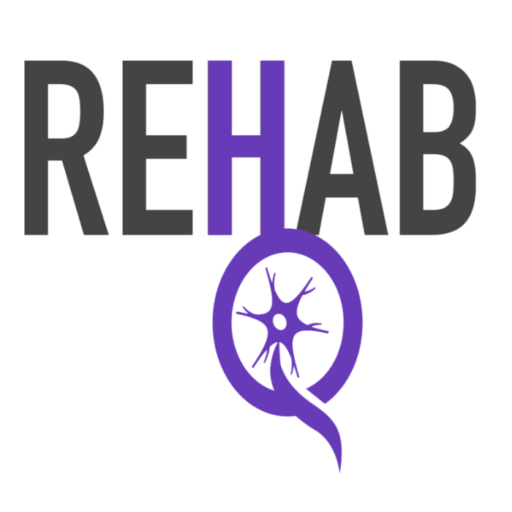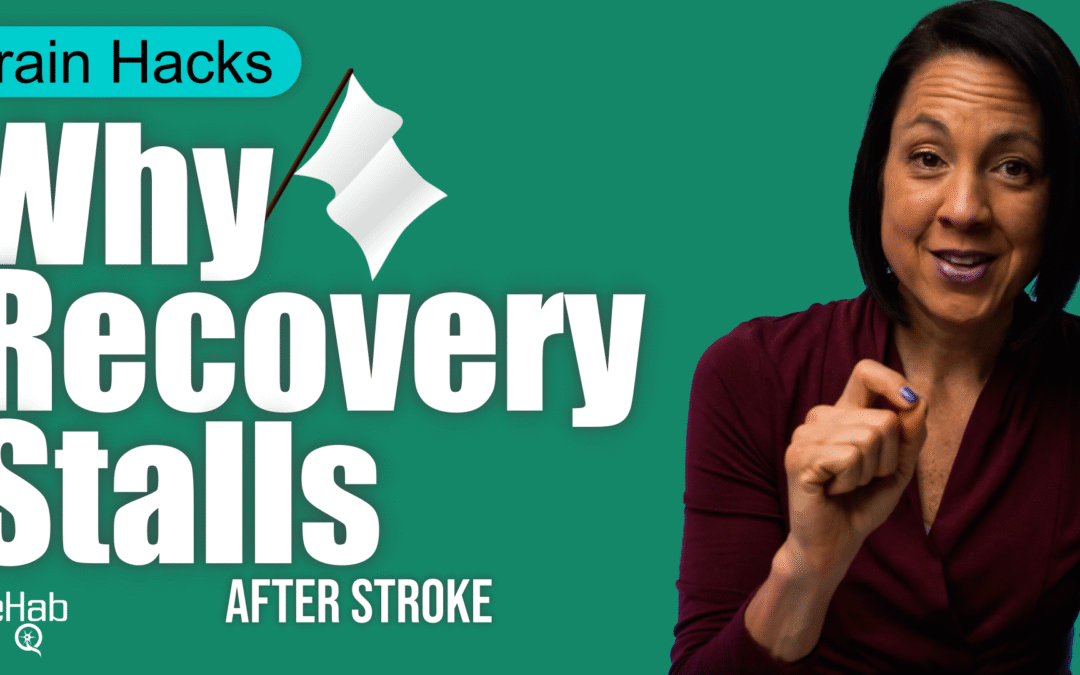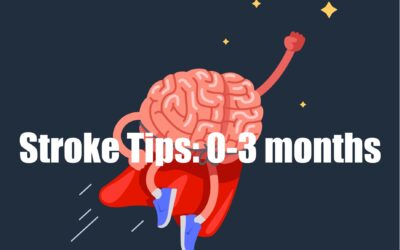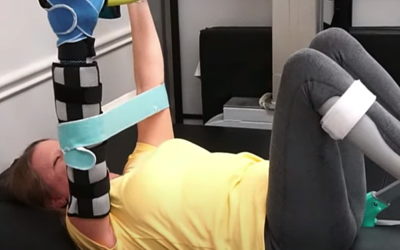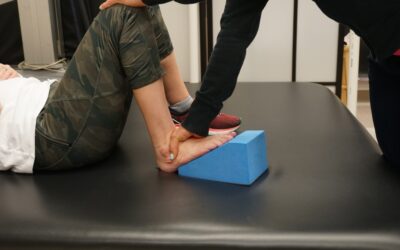Why Stroke Recovery Stalls and How to Push Through
Recovery may feel stuck, but progress is still possible. Here’s how to keep improving after a plateau.
Recovering from a stroke or neurologic injury can feel overwhelming. Walking, driving, working, or even just picking up your grandkids. It all feels like a mountain to climb. But what if I told you the secret isn’t in chasing the big goals right away? It’s in celebrating small wins every single day.
Why Big Goals Can Feel Overwhelming
I’ve worked with patients for over 22 years, and one of the most common things I see is this: the finish line feels too far away. You look at all the exercises, all the steps between where you are now and where you want to be, and it feels like dumping out a 1,000-piece puzzle. You don’t even know where to start.
And when your brain starts telling you “there’s no way I’ll get there,” motivation goes out the window.
Why Small Wins Matter for Your Brain
Recovery after stroke isn’t like recovering from a sprained ankle. It’s not just about getting your muscles stronger. You’re not just rehabbing a body part, you’re retraining your brain.
That means you need repetition, over and over, to rewire those pathways.
If someone had handed you an algebra book in elementary school, you probably would’ve thrown in the towel. But broken into small chunks? You learned, step by step, until one day algebra made sense.
Recovery works the same way.
The Confidence Snowball
Here’s what happens when you set small goals:
- You start to see yourself differently.
- You go from being “stuck” to being someone who can overcome challenges.
- Your confidence grows.
That confidence builds momentum. Momentum keeps you motivated. And once your brain starts to believe that, progress speeds up.
Real-Life Wins
Some of my patients want long exercise lists. They feel like if they’re not doing more, more, more, they’re not working hard enough.
But in reality? The people who get the best results are the ones who stick to a short, simple program every single day.
For example: Flipping your hand over 10 times.
These things sound small. But stacked up over days and weeks, they create real change. I’ve seen it hundreds of times.
Celebrate Every Step
Some of the best signs of progress aren’t dramatic, they’re subtle. Things like:
- Being able to lift your leg into the car a little easier
- Stepping over a curb without thinking about it
These are huge wins. If you start writing them down every day, you’ll be amazed at how far you’ve come in just a few weeks or months.
And if you feel like you can’t find any win? Then celebrate the fact that you showed up and did something today. That alone is a win.
How to Make Small Wins Work for You
Keep goals tiny. Make them so small you know you can succeed daily.
Tie them to a habit. Brush your teeth? Do 3 sit-to-stands right after. Making coffee? Practice standing balance for 5 seconds.
Check in occasionally. Zoom out every month or two to see how today’s small goals fit into your bigger vision.
Final Thoughts
Recovery isn’t one giant leap. It’s thousands of small steps, stacked one on top of another.
Don’t underestimate them.
Today, ask yourself: what’s one tiny win I can create? Do that, celebrate it, and trust that these small daily victories will add up to something far bigger than you can imagine.
And if you want more support, structure, and guidance on how to make this work in your recovery, check out our Rehab HQ Membership plans here. It’s designed to give you community, tools, and step-by-step strategies so you can stay consistent and keep moving forward.
Articles you may be interested in
Stroke: Critical Tips (0-3 months)
Stroke survivors often suffer from a myriad of complications after their stroke. In an effort to help you get the most out of your rehab (and reach your maximum potential) there are some critical tips and/or “foundational” points of emphasis. Things you didn't...
Parkinson’s Disease: Managing Depression
Depression is common problem associated with Parkinson's disease (PD) and can affect all aspects of your life. In fact, it is estimated that approx. 40-50% of those diagnosed with PD experience depression. Depression is a serious mental illness that causes severe...
Multiple Sclerosis: How much exercise is enough?
It seems almost every other week there is some new study on the benefits of exercise and how it can help prevent conditions like diabetes, heart disease, and depression. But what about multiple sclerosis? The national MS society reports that 1 million people are...
Equipment for Stroke Arm Exercises
Products For a Spastic Arm Having the right tools for stroke arm rehabilitation is critical. Especially for those who have spasticity. Spasticity is an involuntary muscle contraction caused by damage to the brain and/or spinal cord. In the arm it can cause...
Foam Wedges: For positioning and more
Positioning/Stretching Foam Wedge This wedge is made of dense foam with a rubber base to keep it from sliding. Uses: It can be used to position the pelvis. It can be placed under the thigh in sitting to stop the leg from rotating outward. It can be used for bridging...
Clonus: Causes and Treatment
Clonus is an involuntary, rhythmic muscle contraction followed by a relaxation. It is a sign that there is damage to the brain and/or the spinal cord (upper motor neuron). More specifically, the part of the nervous system that controls movement (descending motor...
Rolling with the punches after a Stroke
Why do some people seem to “thrive” in the midst of life’s challenges? You know the type. Or maybe you don’t. To understand what I mean, you need to be a “people analyzer”. You see, I AM a “people analyzer”. I love to know what makes people tick. Especially when it...
Abnormal Muscle Synergies after a Stroke or Brain Injury
Abnormal muscle synergies are one of the most common "movement problems" after a stroke or brain injury. What is an abnormal muscle synergy? A flexor synergy is when the hip, knee, and ankle all flex at the same time (visualize drawing your knee into your chest). An...
Neuro Rehab is 90% mental, 10% physical
What should you expect to achieve in neurologic rehabilitation? My answer might confuse you, frustrate you, and hopefully challenge you to think differently. The most critical component of a successful outcome (in neurologic rehabilitation) is NOT based on the extent...
Hemiplegia: Fix a side bent trunk
Hemiplegia (weakness on one side of the body) can cause an unnatural "side bent" posture. This is sometimes also referred to as lateral trunk flexion. What is a "side bent" posture (lateral trunk flexion) with hemiplegia? A side bent posture is a “structural problem”...
